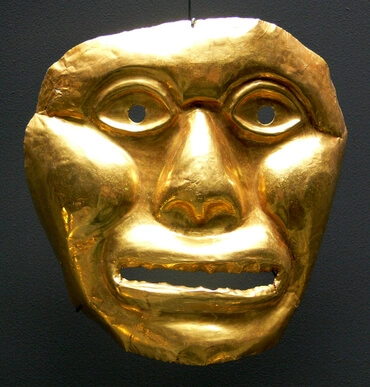Apocalypse Revealed # 492
492. "Clothed in sackcloth." This symbolizes the grief experienced meanwhile over the truth's not being accepted.
Being clothed in sackcloth symbolizes grief over the destruction of truth in the church, for garments symbolize truths (nos. 166, 212, 328, 378, 379). Consequently to be clothed in sackcloth, which is not a garment, symbolizes grief over the lack of truth, and where there is no truth, there is no church.
The children of Israel represented grief in various ways, which, because of their correspondence, were symbolic. For example, they would put ash on their heads, roll around in the dust, sit on the ground for a long time in silence, shave themselves, beat their breasts and wail, rend their garments, and also clothe themselves in sackcloth, and so on. Each action symbolized some evil in the church among them for which they were being punished. Then, when they were being punished, they put on a representation of repentance in these ways, and because of their representation of repentance, and at the same time then of their humbling themselves, they were heard.
[2] That putting on sackcloth represented grief over the destruction of truth in the church may be seen from the following passages:
The lion has come up from his thicket... He has gone forth from his place to make your land desolate... For this, clothe yourself with sackcloth, lament, wail. (Jeremiah 4:7-8)
O daughter of my people, gird yourself in sackcloth and roll about in ashes! ...For the destroyer will suddenly come upon us. (Jeremiah 6:26)
Woe to you, Chorazin (and) Bethsaida! For if the mighty works which were done in you had been done in Tyre and Sidon, they would have repented... in sackcloth and ashes. (Matthew 11:21, Luke 10:13)
After the king of Nineveh heard the words of Jonah, he "laid aside his robe, covered himself with sackcloth and sat in ashes." Moreover, he proclaimed a fast and ordered that "man and beast be covered with sackcloth." (Jonah 3:5-8)
And so on elsewhere, as in Isaiah 3:24; 15:2-3; 22:12; 37:1-2; 50:3; Jeremiah 48:37-38; 49:3; Lamentations 2:10; Ezekiel 7:17-18; 27:31; Daniel 9:3; Joel 1:8, 13; Amos 8:10; Job 16:15-16; Psalms 30:11; Psalms 35:13; 69:10-11; 2 Samuel 3:31; 1 Kings 21:27; 2 Kings 6:30; 19:1-2.
Gold

Gold means good, and just as gold was the most precious metal known to ancient mankind so it represents the good of the highest and wisest of the angels. These angels foremostly love the Lord, and because they do they act from that love at all times. So the things they do are from love or as the writings for the new church often say, their acts are "goods of love". This is what gold represents. As soon as God planted the garden of Eden, He created a river in it, to water it. This river went out and branched into four, the first branch mentioned, Pishon, encompassed the "…land of Havilah, where there is gold… and the gold…is good". Another mention of gold comes in Exodus where the Lord is telling Moses how to make the Tabernacle. If you pay attention you will see that inside the tabernacle the main thing you see is gold, the boards of the wall are covered with it and all the furniture is either wood covered completely with gold, or is made of solid gold. Then at the end of the Word the holy city descends from God and it is made of gold, "gold like unto clear glass" good of love that can be clearly and completely understood. And it has its river. This is a promise from the Lord that we can come into a state similar to that of the garden of Eden, if we follow Him so as to come into love for Him, and act from that love.






